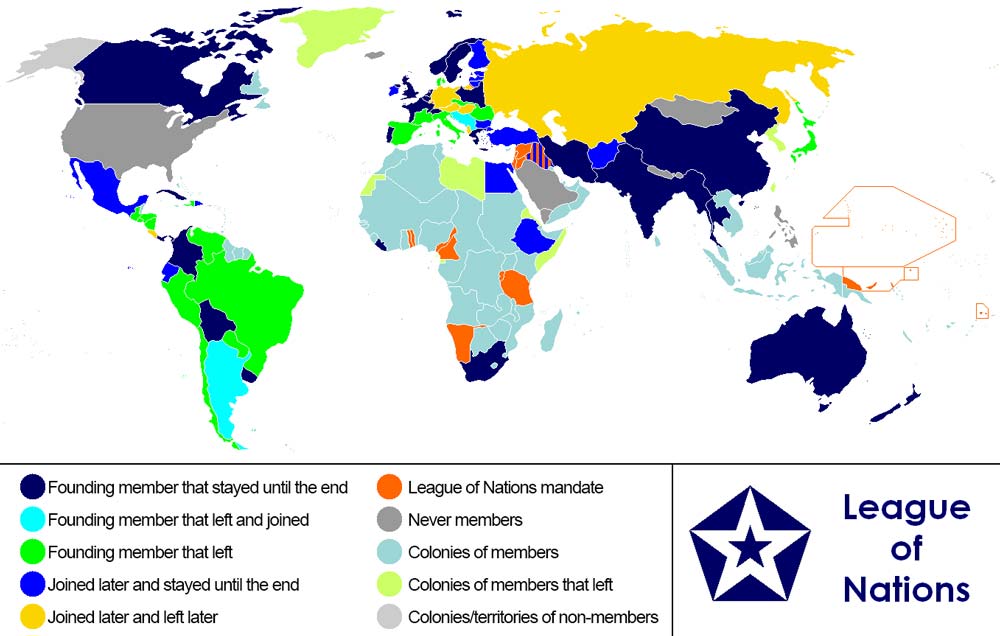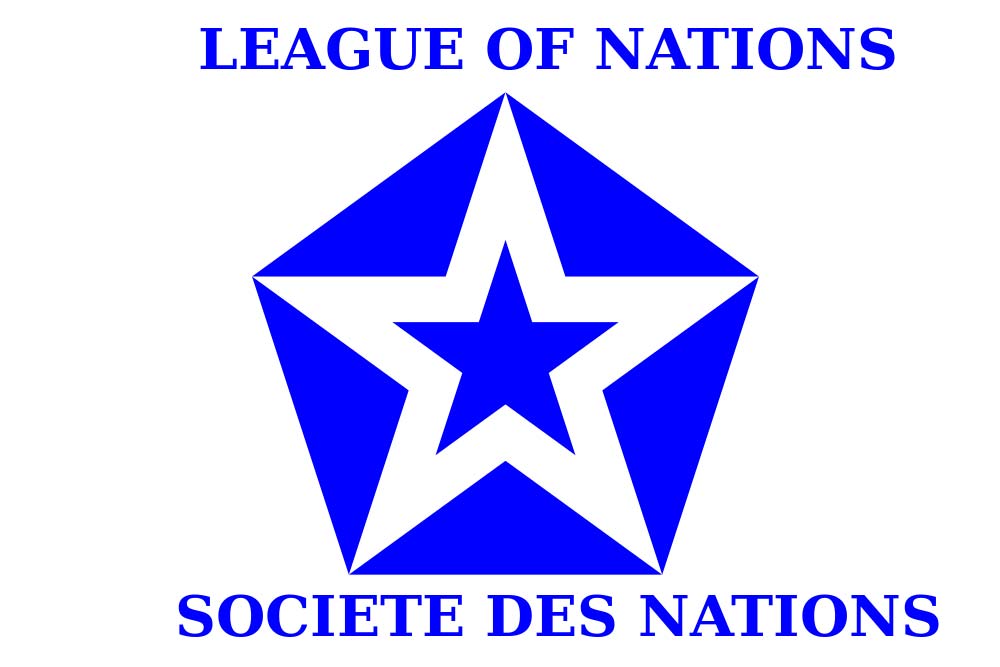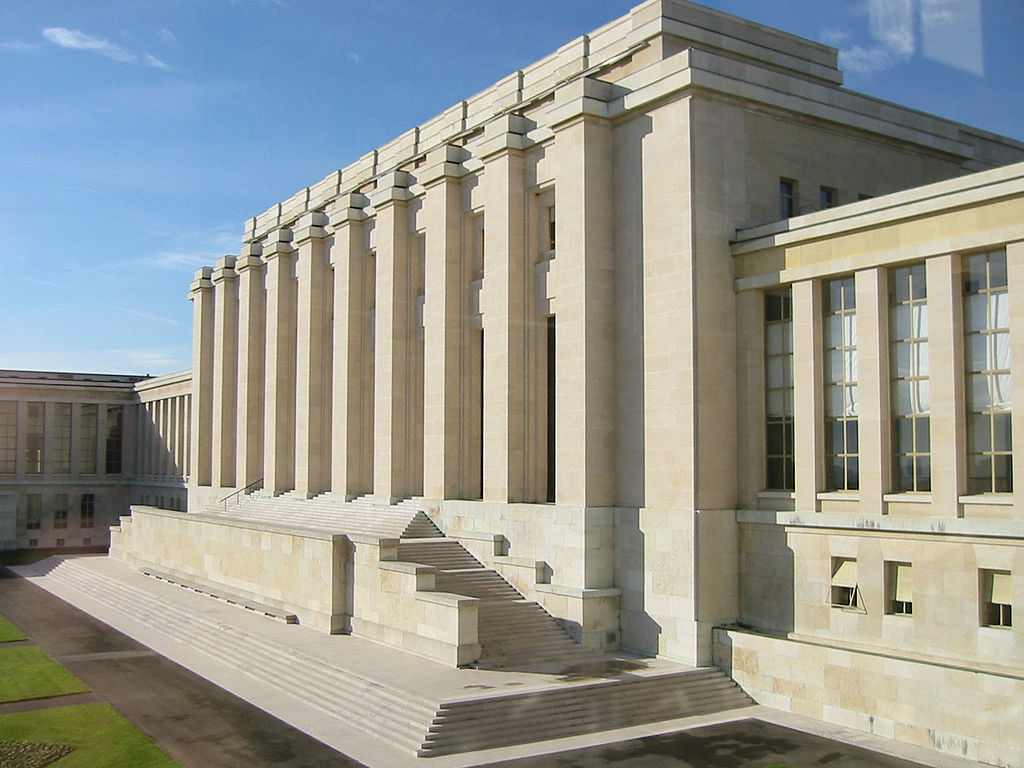 After the global bloodbath of World War I, the leading nations of the world decided that the best way to avert another world war was to form an alliance of nations that would serve as an overseeing entity that would safeguard against another epic war. The League was comprised of 42 nations, the most powerful of which were Great Britain and France. Germany and Russia were not allowed membership, based on their aggressions during World War I, and the United States chose to not be included in the League due to its change to an isolationist state.
After the global bloodbath of World War I, the leading nations of the world decided that the best way to avert another world war was to form an alliance of nations that would serve as an overseeing entity that would safeguard against another epic war. The League was comprised of 42 nations, the most powerful of which were Great Britain and France. Germany and Russia were not allowed membership, based on their aggressions during World War I, and the United States chose to not be included in the League due to its change to an isolationist state.
The league was based in neutral Switzerland, and served for 27 years as a prequel to the United Nations.
The Powers of the League of Nations
 The League had no military might of its own and had to rely on its member nations to provide physical force if necessary.
The League had no military might of its own and had to rely on its member nations to provide physical force if necessary.
The League had three powers of leverage, called “sanctions”:
1. It could encourage disagreeing nations to engage in discussions in an attempt to resolve their conflicts peacefully.
2. It could impose economic sanctions against uncooperative nations, in order to force these nations to negotiate with their counterparts in order to avoid financial ruin.
3. It could impose military sanctions with limited results. As stated above, the League did not have its own military force; thus, it had to rely on its member nations to provide the troops necessary. The only problem with this was the fact that there were only two nations with sufficient manpower to supply this need, France and Great Britain – and they had been significantly weakened from World War I. Thus, while military sanctions were listed to be within the League’s scope of powers, it was no secret that this sanction could not be enforced.
Triumphs of the League
 Despite the League of Nations’ limited ability to enforce its decisions, it did serve to deter war from breaking out in several instances:
Despite the League of Nations’ limited ability to enforce its decisions, it did serve to deter war from breaking out in several instances:
The Aaland Islands – Lying an equal distance between Finland and Sweden, a dispute erupted between those who lived on the islands as to who would govern them. Traditionally they had been considered to be ruled by Finland, but most of them preferred to be ruled by Sweden. This evolved into a dispute and the League was asked to intercede. After deliberating, it was the decision of the League that Finland would continue to govern the islands, but with no weapons. The League’s decision was accepted by all parties.
Upper Silesia – As a result of the Treaty of Versailles, the citizens of Upper Silesia had the choice of whether to become a part of Germany or a part of Poland. A referendum was held with very close results: 700,000 for Germany and 500,000 for Poland. Because of the close results, civil unrest and riots developed and a solution was needed. The League of Nations was asked to resolve the situation and, after six weeks’ deliberation, it decided that Upper Silesia should be split between Germany and Poland, and all parties agreed.
Memel – Considered a part of Lithuania for years, the port of Memel was declared to be under the control of the League of Nations by the Treaty of Versailles. Lithuania responded to this by invading the port. The League stepped in and gave the area surrounding the port to Lithuania, and the port itself was to be an international zone. Lithuania did not oppose this decision and, although this incident is considered by most to be a victory for the League, others saw it as an expression of weakness on the part of the League, asserting that it acquiesced to the will of an aggressor.
Turkey – In one of the greatest humanitarian efforts by the League, Turkey was greatly helped by the League, after suffering a bloody conflict that the League had unsuccessfully attempted to prevent. Typhoid and cholera were sweeping across the land, claiming women and children with alarming frequency. The League responded to the call by dispatching doctors to the team, as well as supplies, medicine, food, and materials needed to build homes and farms. The League also helped by supplying seeds for farmers to sow.
The Failures of the League of Nations
Charged with the task of keeping peace between nations, failure to do so counted as a failure of the League.
Italy (1919) – Italian citizens maintained that the “Big 3” of the allies had broken a promise to Italy and captured the small port and it was governed by an Italian named d’Annunzio. An appeal to the Leagued yielded nothing, so the situation was resolved independently of the League.
Teschen – Located between Poland and Czechoslovakia, Teschen contained valuable coal mines which could help tremendously for these relatively new countries that needed these natural resources. The League was asked to step in and, after considering the matter, gave most of the lands to Poland, with the exception of one of Teschen’s suburbs, which contained the largest number of coal mines. While no actual conflict resulted, Poland disagreed with the decision, and refused to accept it. The discord remains to this day.
Vilna (1920) – The city of Vilna had been considered property belonging to Russia and Lithuania at different times, and in 1920 it was chosen as the capital city of Lithuania. However, the majority of the population was from Poland and dissatisfaction began to emerge. The League was called upon, and it decided in favor of Lithuania. The Poles refused to accept their decision and also refused to leave Vilna. They maintained their stronghold and won by aggression.
War Between Russia and Poland – In 1920, Russia was invaded by Poland and the Russians were unable to prevent the Poles from advancing into Russia. The Russians were forced to sign the Treaty of Riga, which gave Poland nearly 80,000 square kilometers of Russian land to Poland. The League of Nations did not try to prevent this action due to Russia not being a part of the League. It was actions (or inactions) such as these that caused some to accuse the League of Nations of showing preferential treatment for certain countries, and no such treatment for others.
In Summary
While the League of Nations was eventually dissolved, it formed an important basis for another important global organization, the United Nations. Whether the League’s success, or failure, dominated its historic record, it cannot be denied that in the quest for peace, the League of Nations was an important segment of history.